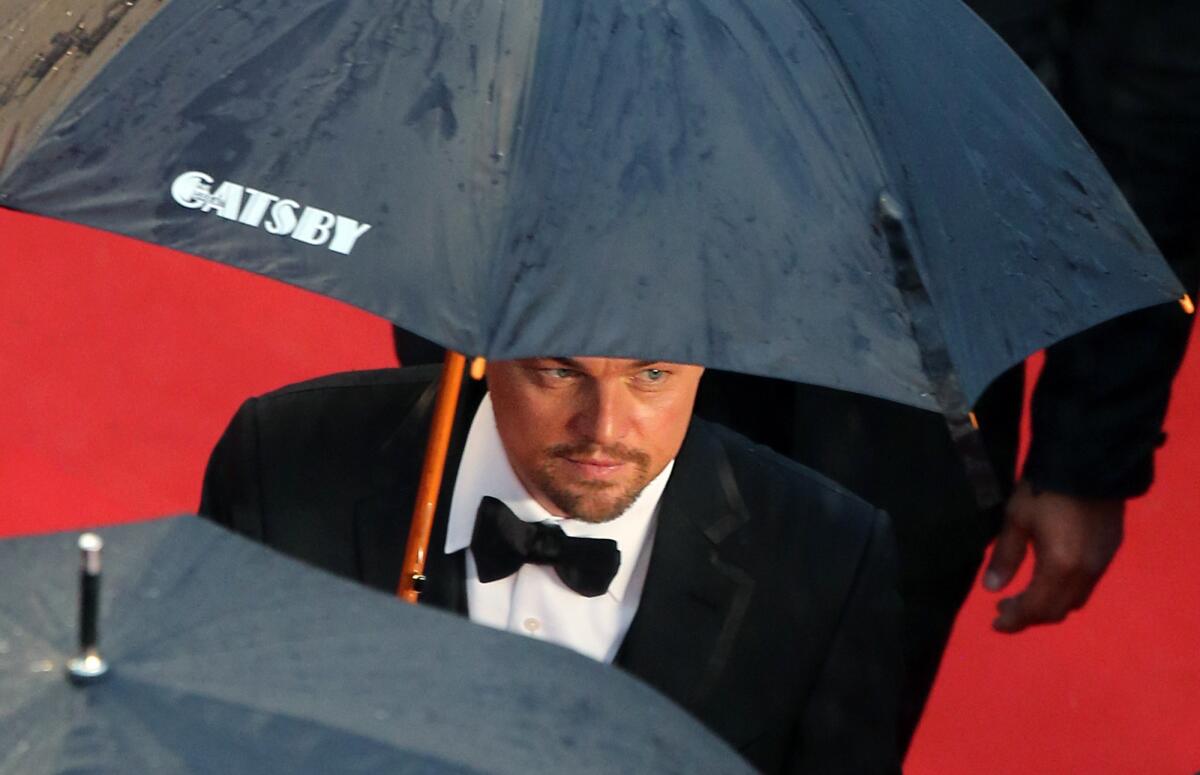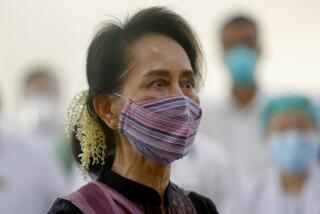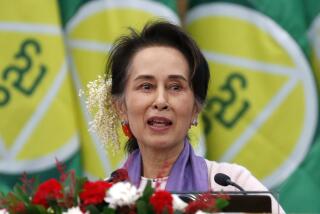The Week Ahead: Myanmar mends, Africa ascends, cinema celebrates

Architect of exiting autocracy invited to the White House
Monday, May 20 -- Myanmar President Thein Sein’s visit to Washington symbolically celebrates his nation’s embrace of democracy and the rule of law after half a century of dictatorship.
While Sein has overseen impressive progress on reform since his April 2011 election, he is likely to receive a challenging still-to-do list from his U.S. hosts.
Myanmar, also known as Burma, remains mired in ethnic and religious strife and beset by persistent tensions over the pace and scope of reform. Hundreds have been killed in clashes between the military-backed Buddhist majority and Rohingya Muslims and Kachin Christians.
Hundreds of thousands more have fled their homes to escape the violence. Human Rights Watch has accused the government of condoning “a campaign of ethnic cleansing.”
Despite the considerable deficiencies in Myanmar’s post-dictatorship development, the Obama administration has made reconciliation with the country a showcase element of the “Asia pivot” intended to counterbalance China’s dominance in the region.
Obama became the first sitting U.S. president to visit Myanmar when he met with Sein and other leaders in November, and Sein is the first Burmese head of state to be received in the White House since Ne Win in 1966, four years into the late autocrat’s seizure of power and imposition of the “Burmese Way” of socialism.
Since Sein stepped into the leadership role two years ago, he has restored quasi-civilian governance in the country, prompting the United States to gradually lift sanctions in place for 20 years.
Hundreds of political prisoners have been released by the new government in recent months, including 20 freed on Friday in what the leadership denied was a goodwill gesture ahead of Sein’s Washington visit. But hundreds more ethnic and religious minorities jailed for alleged roles in the violent clashes remain in custody by order of the powerful military hierarchy -- a drag on the work to restore democracy likely to figure in Obama administration officials’ talks with Sein.
The Burmese president’s visit follows by eight months that of Aung San Suu Kyi, the long-stifled voice of Myanmar’s pro-democracy movement who was elected to parliament in April 2012. She ran a victory lap around Washington in September, collecting accolades and awards for toughing out two decades of house arrest to keep alive her nation’s hopes of an end to the brutal rule of the junta.
A continent looks to the future with confidence tempered by fear
Through Monday, May 27 -- An African Union summit that opened Sunday in the Ethiopian capital of Addis Ababa will explore the complex web of developments transforming Africa, from rapid economic growth to unsettling security challenges that stretch across the Sahel.
Foreign policy analysts describe Africa as being in the midst of a “renaissance,” as former colonial subjects post impressive advances in gross domestic product, eradicate endemic diseases and collaborate with global economic giants to tap its wealth of natural resources.
While China has been aggressively sealing resource-extraction deals across Africa, some populations are concerned by the Asian giant’s failure to invest in more broad-based development. African leaders in the most forward-looking countries want growth-spurring infrastructure projects with the foreign partners, like ports, highways and railroads, said Robert McMahon, editor of the Council on Foreign Relations website.
U.S. Secretary of State John F. Kerry will take part in the weeklong gathering to reinforce U.S. support for the AU’s growing self-confidence and assertiveness in intervening to resolve the continent’s problems.
Despite laudable economic advances, Africa remains beset with ethnic, religious and ideological unrest, from the aftermath of Mali’s French-backed spring offensive to oust Islamic militants to Nigeria’s ongoing strikes against Boko Haram extremists. A recent coup in the Central African Republic, the threat of war between Sudan and South Sudan, continuing blowback from the 2011 Libyan civil war and fresh clashes between Congolese government troops and rebel factions are also focusing the diplomats’ attention on security matters this week.
Farewell to a Riviera spectacle fanned by golden palms
Sunday, May 26 -- The glitz, glamor and politics of the film world’s most prestigious festival culminate in the awarding of the Festival du Cannes Palme d’Or statues on Sunday.
This year’s international jury president, Steven Spielberg, brings solid gold Hollywood credentials to the prestigious competition, though no less mystery than in years past about what type of film will win his vote. Twenty diverse selections from around the world are in competition at the 12-day event.
Angling for the Palme d’Or are Roman Polanski’s “Venus in Fur,” Steven Soderbergh’s “Behind the Candelabra,” Alexander Payne’s “Nebraska,” Jim Jarmusch’s “Only Lovers Left Alive” and “Inside Llewyn Davis” by brothers Ethan and Joel Coen.
Two directors who grappled with tough censorship regimens, Asghar Farhadi of Iran and Jia Zhangke of China, debuted their films Friday and sought to assure the cinema world press that they labor to protect their art from the state’s heavily wielded scalpel.
Farhadi’s “The Past,” about a divorcing couple, mostly steers clear of politics, as did his 2012 Academy Award-winning “A Separation.” Jia’s “A Touch of Sin,” though, confronts head-on the social upheavals inflicted by China’s hellbent economic development.
The international jury Spielberg heads also includes this year’s Oscar winners Ang Lee, best director for “Life of Pi,” and Christoph Waltz, best supporting actor for his role in “Django Unchained.”
Another member of the panel to decide the Palme d’Or winners is Australian actress Nicole Kidman, who on Friday was on hand for the release of a clip from the Grace Kelly biopic in which she will appear later this year. “Grace of Monaco” was shot just 40 miles down the coast in the French Riviera principality where Kelly spent her last years as European royalty before a 1982 car accident took her life at age 52.
More to Read
Start your day right
Sign up for Essential California for news, features and recommendations from the L.A. Times and beyond in your inbox six days a week.
You may occasionally receive promotional content from the Los Angeles Times.







